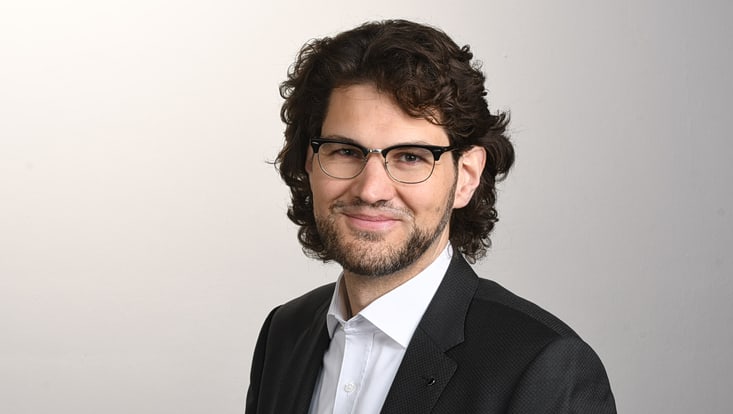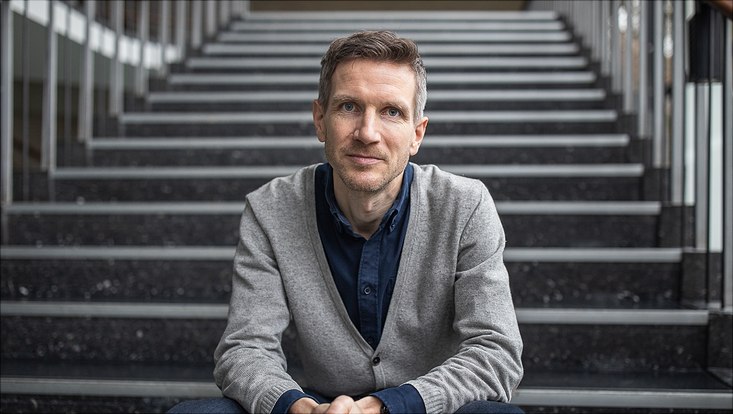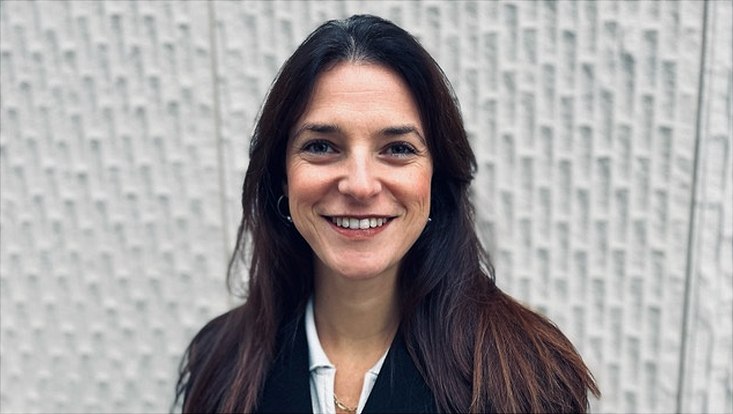Welcome aboard!“Motivating music teachers is essential to enabling children and adolescents to participate in culture”Prof. Dr. Benjamin strengthens the Faculty of Education.
27 February 2025, by Eibach/Red.

Photo: Photo Loos, Siegen
Every year, the University of Hamburg welcomes numerous new researchers. This series introduces them and their areas of research. This time: music teacher Prof. Dr. Benjamin Eibach
In Summer Semester 2025, Prof. Dr. Benjamin Eibach will be joining the University of Hamburg as a professor with a focus on music education in the Faculty of Education. Eibach previously worked at the Frankfurt University of Music and Performing Arts.
How would you describe your field of research in a few sentences?
The central focus of music education is the connections between people and music as they learn and teach. Music education takes a special look at questions related to music-learning, music-teaching, and music classes.
There are a lot of links to other research areas, for example musicology, psychology, philosophy, general education science, and other subject-specific didactics, especially in the aesthetic subjects. These interdisciplinary links make the work really exciting for me because they always open up new perspectives with which I can gain fresh insight into my own area of research.
How do you explain your research in a way that is easy to understand?
Currently, I am concentrating intensively on the history of music classes. I am interested both in what happens in the classrooms and concert halls of the past and the music education discourse of the time. First, I have to find sources from which I can gain knowledge about the past.
Relevant sources, for example, are scores that were used to perform music in schools, old songbooks from which people sang to children and adolescents, and music teaching journals, such as those published at the beginning of the nineteenth century. In other words, much of what to other people is just waste paper is an important foundation for my own research.
What current social issues or challenges would you like to contribute your scientific expertise to?
The teaching profession is highly socially relevant. Well-qualified and enthusiastic music teachers are essential for enabling children and adolescents to take part in culture and to enabling them to understand and reflect upon music in all its variety. With my work at the University of Hamburg, I would like to help students prepare for these tasks.
What can your students expect?
In my seminars, I like to include places outside the University, such as concert halls, theaters, or museums. Ideally, students will have experiences there that are enriching, inspiring, or perhaps even puzzling. In this way, I hope to inspire enthusiasm and foster a passion for music and art generally that prospective teachers can pass on to students in their professional future.
What do you want to achieve at the University of Hamburg, for example in terms of teaching, knowledge exchange, or sustainability?
I think the Hamburg Model provides very good conditions for well-rounded music teacher education: thanks to links to the other subject-specific didactics at the University, there are possibilities for interdisciplinary work. At the same time, cooperation with the Hamburg University of Music and Drama creates an environment that can definitely be inspiring to students in music and the arts. I want to be involved in tapping the potential as best as possible that this special constellation promises.
What about international cooperation? What universities or institutions are you working with?
In the past, I offered courses jointly with a colleague from the School of Music, Theatre and Dance at the University of Michigan. I would like to continue and build upon this cooperation. Last year, I also had a chance to get to know a few schools in Tanzania thanks to private contacts. I am currently looking at to what extent there might be possibilities for cooperation there.
What are you especially looking forward to in Hamburg?
As a music enthusiast, I am naturally really excited about diving into the city’s rich cultural life. I am really looking forward to meeting and sharing with my new colleagues. I think it’s great that in Hamburg, when you meet someone, you don’t have to worry about what time it is—you can always say “Moin!”


